Lecture 3. ENGLISH VOCABULARY AS A SYSTEM In

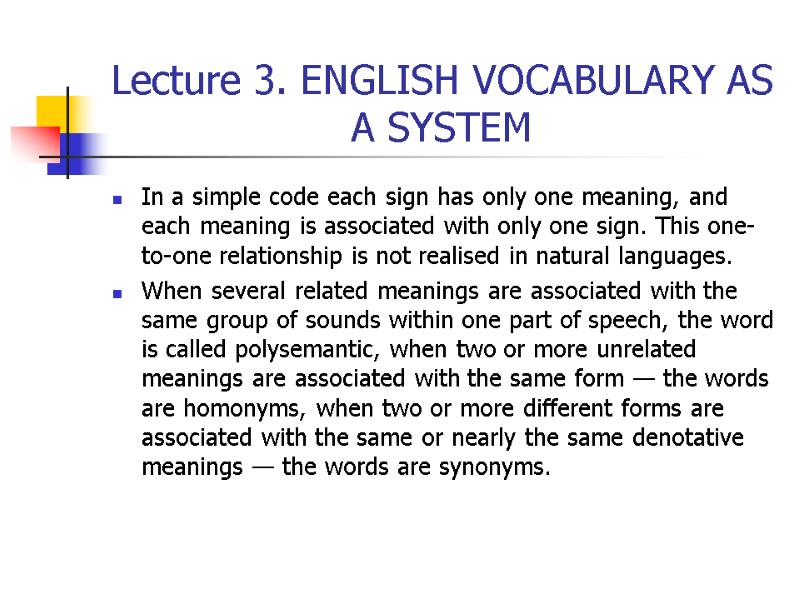
Lecture 3. ENGLISH VOCABULARY AS A SYSTEM In a simple code each sign has only one meaning, and each meaning is associated with only one sign. This one-to-one relationship is not realised in natural languages. When several related meanings are associated with the same group of sounds within one part of speech, the word is called polysemantic, when two or more unrelated meanings are associated with the same form — the words are homonyms, when two or more different forms are associated with the same or nearly the same denotative meanings — the words are synonyms.
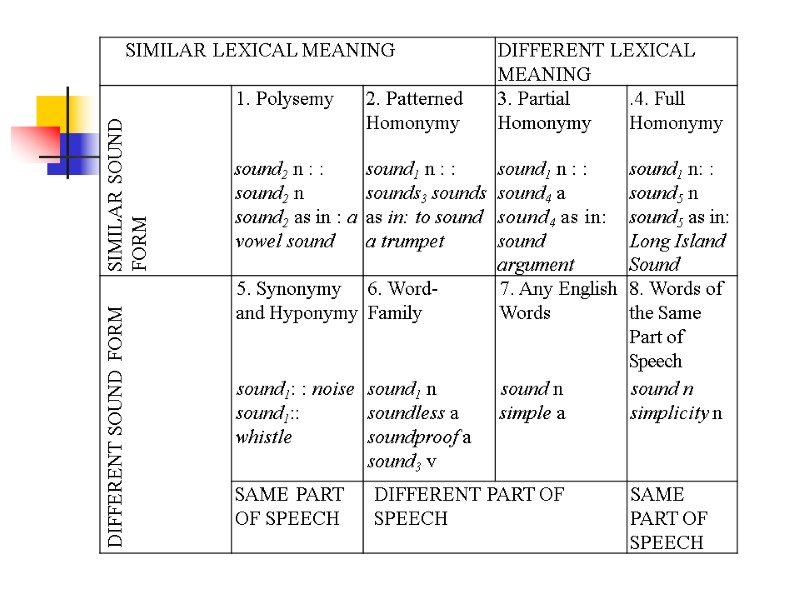
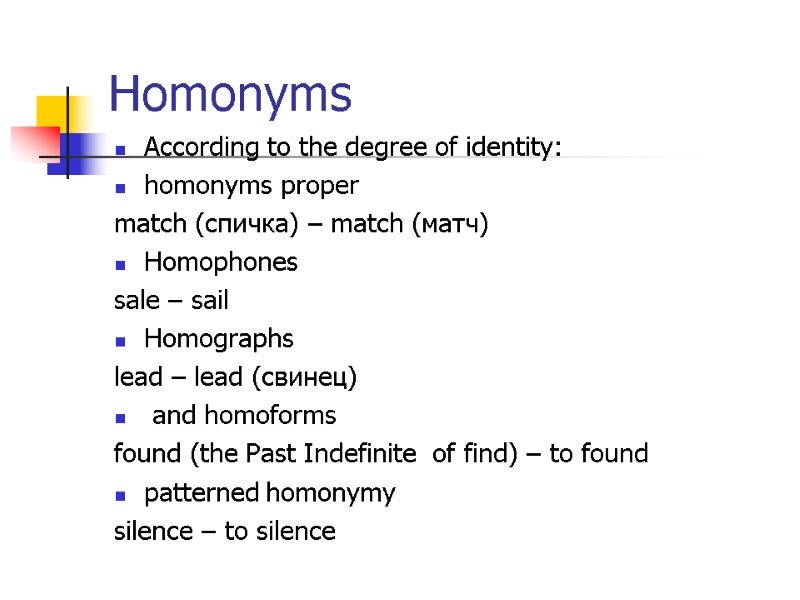
Homonyms According to the degree of identity: homonyms proper match (спичка) – match (матч) Homophones sale – sail Homographs lead – lead (свинец) and homoforms found (the Past Indefinite of find) – to found patterned homonymy silence – to silence
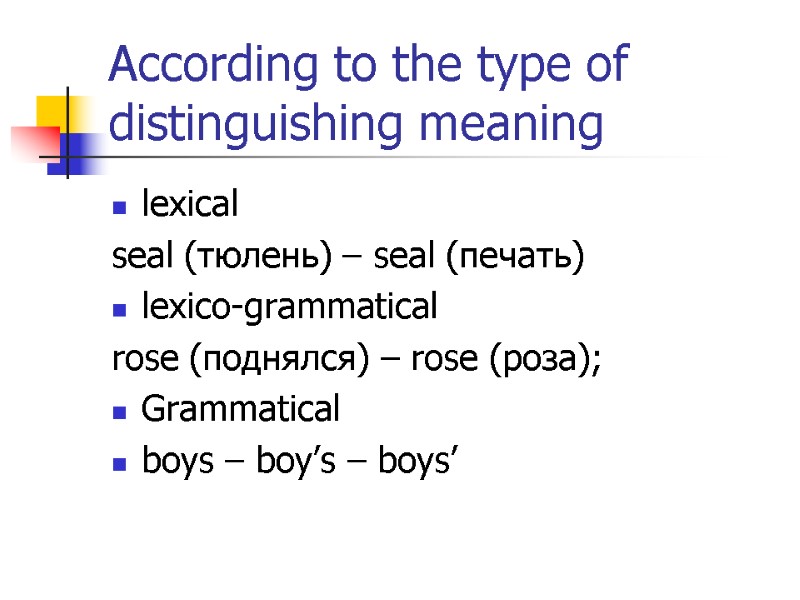
According to the type of distinguishing meaning lexical seal (тюлень) – seal (печать) lexico-grammatical rose (поднялся) – rose (роза); Grammatical boys – boy’s – boys’
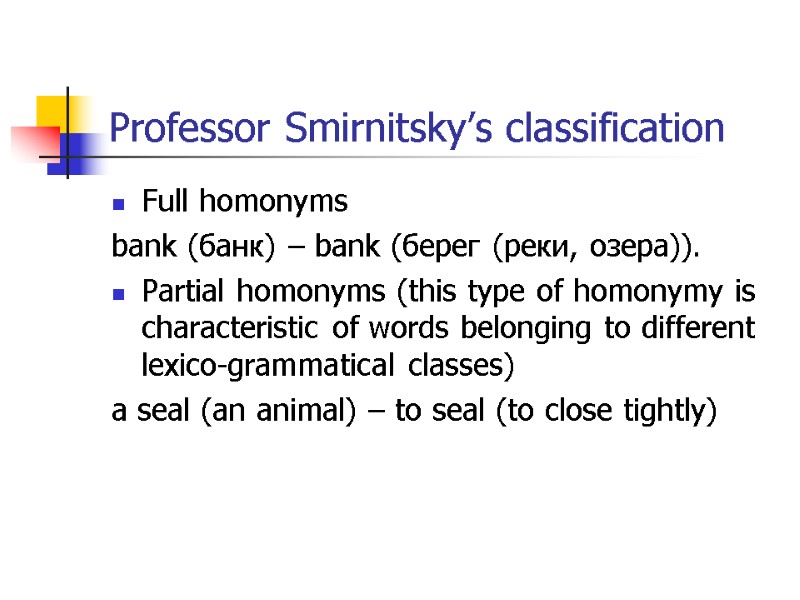
Professor Smirnitsky’s classification Full homonyms bank (банк) – bank (берег (реки, озера)). Partial homonyms (this type of homonymy is characteristic of words belonging to different lexico-grammatical classes) a seal (an animal) – to seal (to close tightly)
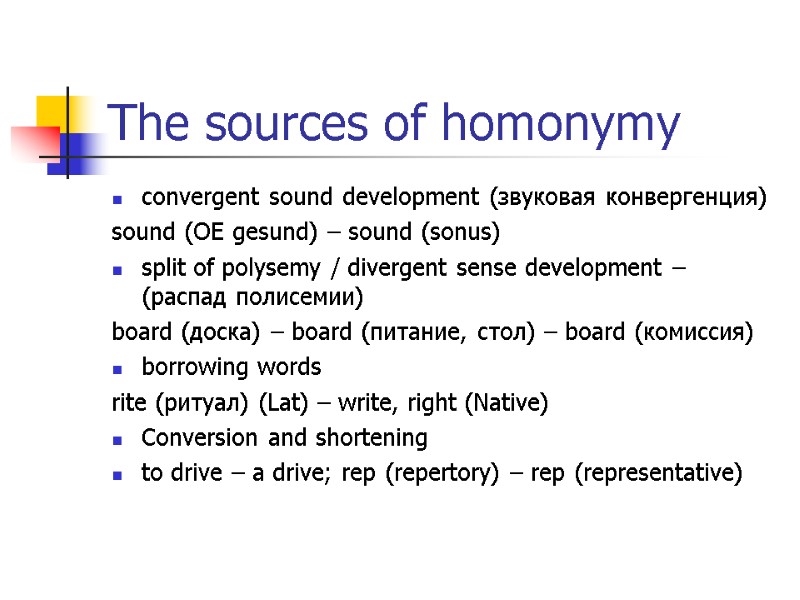
The sources of homonymy convergent sound development (звуковая конвергенция) sound (OE gesund) – sound (sonus) split of polysemy / divergent sense development – (распад полисемии) board (доска) – board (питание, стол) – board (комиссия) borrowing words rite (ритуал) (Lat) – write, right (Native) Conversion and shortening to drive – a drive; rep (repertory) – rep (representative)
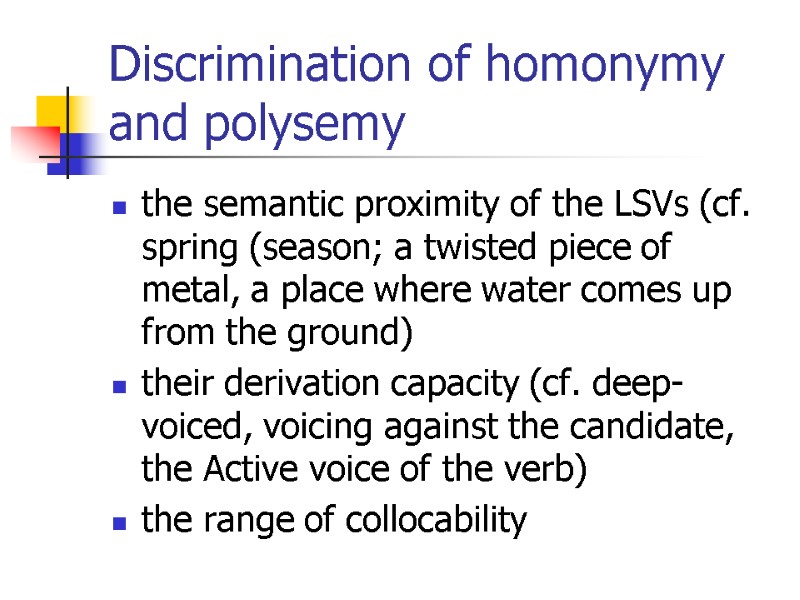
Discrimination of homonymy and polysemy the semantic proximity of the LSVs (cf. spring (season; a twisted piece of metal, a place where water comes up from the ground) their derivation capacity (cf. deep-voiced, voicing against the candidate, the Active voice of the verb) the range of collocability
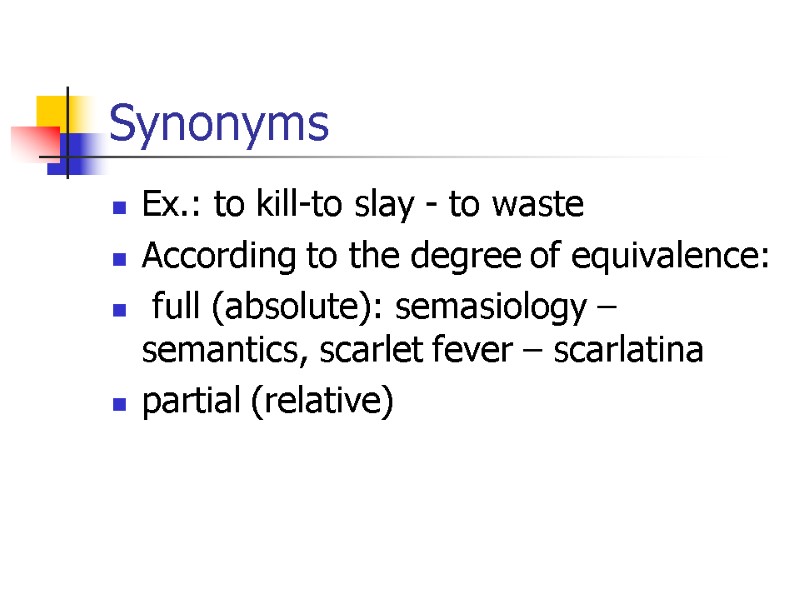
Synonyms Ex.: to kill-to slay - to waste According to the degree of equivalence: full (absolute): semasiology – semantics, scarlet fever – scarlatina partial (relative)
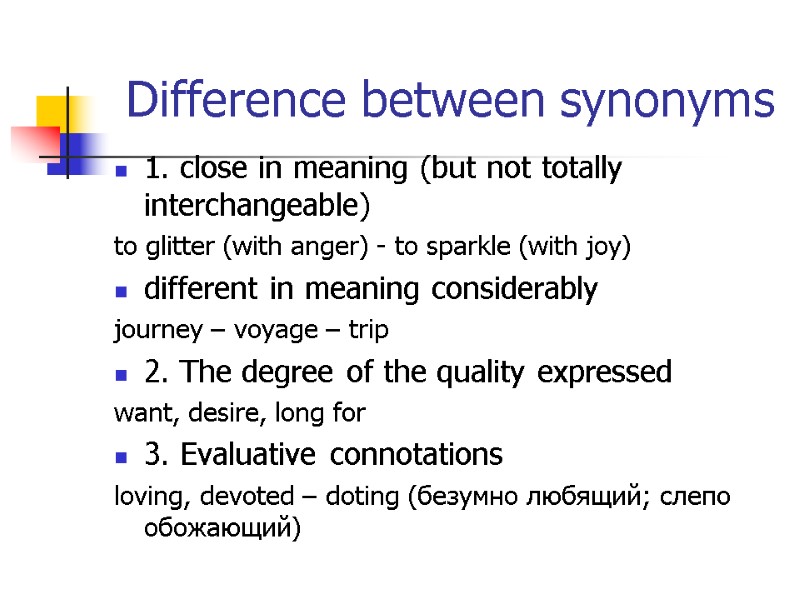
Difference between synonyms 1. close in meaning (but not totally interchangeable) to glitter (with anger) - to sparkle (with joy) different in meaning considerably journey – voyage – trip 2. The degree of the quality expressed want, desire, long for 3. Evaluative connotations loving, devoted – doting (безумно любящий; слепо обожающий)
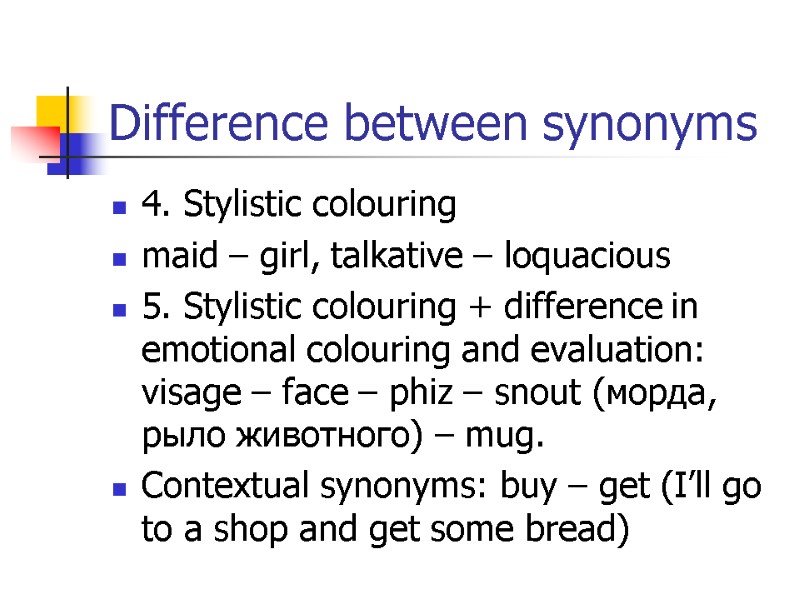
Difference between synonyms 4. Stylistic colouring maid – girl, talkative – loquacious 5. Stylistic colouring + difference in emotional colouring and evaluation: visage – face – phiz – snout (морда, рыло животного) – mug. Contextual synonyms: buy – get (I’ll go to a shop and get some bread)
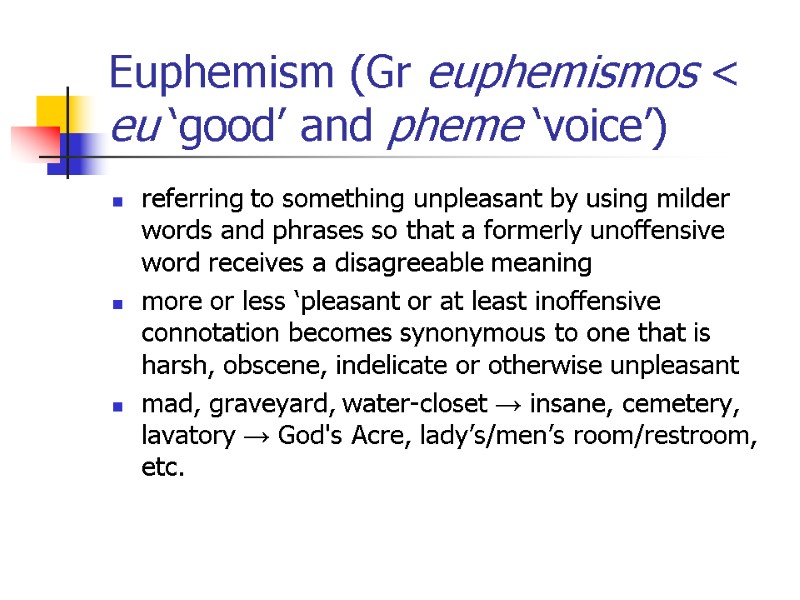
Euphemism (Gr euphemismos < eu ‘good’ and pheme ‘voice’) referring to something unpleasant by using milder words and phrases so that a formerly unoffensive word receives a disagreeable meaning more or less ‘pleasant or at least inoffensive connotation becomes synonymous to one that is harsh, obscene, indelicate or otherwise unpleasant mad, graveyard, water-closet → insane, cemetery, lavatory → God's Acre, lady’s/men’s room/restroom, etc.
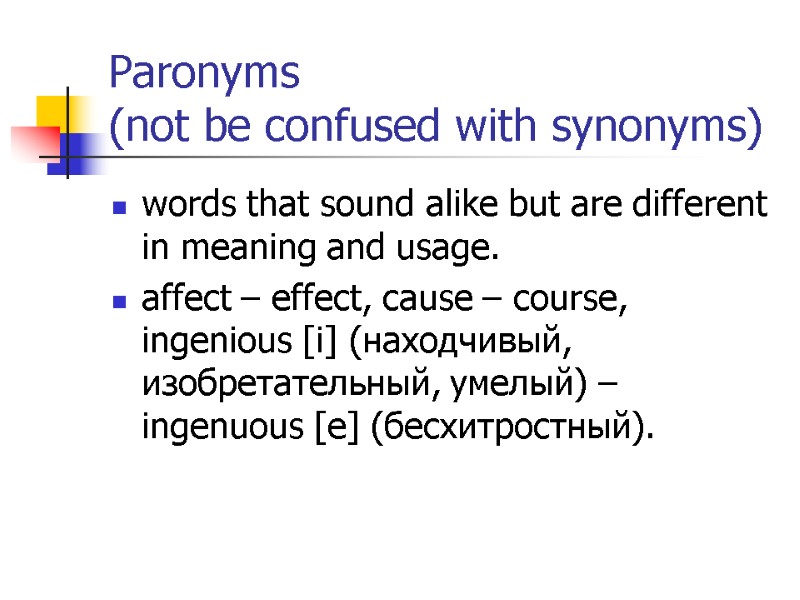
Paronyms (not be confused with synonyms) words that sound alike but are different in meaning and usage. affect – effect, cause – course, ingenious [i] (находчивый, изобретательный, умелый) – ingenuous [e] (бесхитростный).
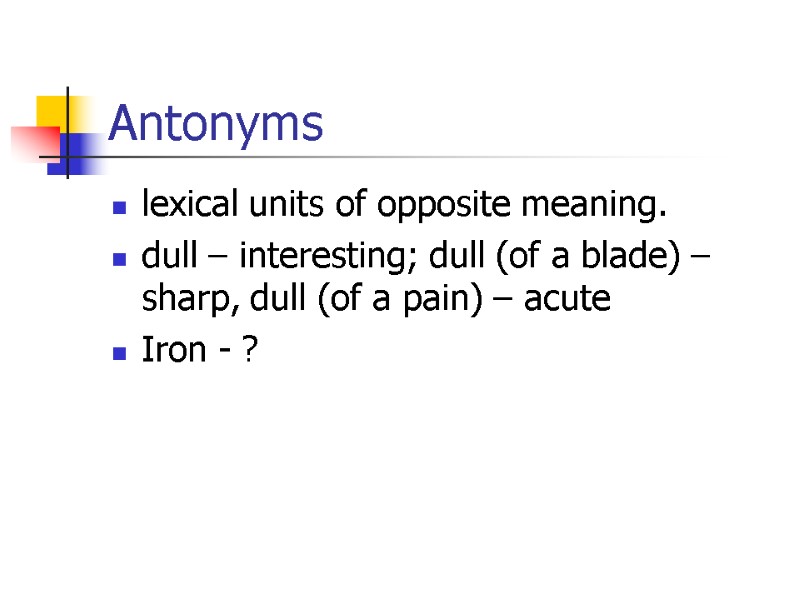
Antonyms lexical units of opposite meaning. dull – interesting; dull (of a blade) – sharp, dull (of a pain) – acute Iron - ?
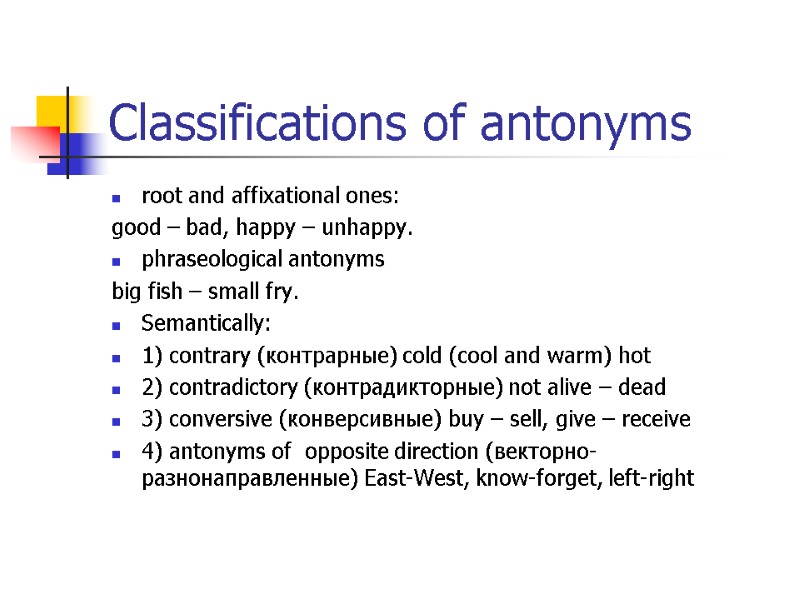
Classifications of antonyms root and affixational ones: good – bad, happy – unhappy. phraseological antonyms big fish – small fry. Semantically: 1) contrary (контрарные) cold (cool and warm) hot 2) contradictory (контрадикторные) not alive – dead 3) conversive (конверсивные) buy – sell, give – receive 4) antonyms of opposite direction (векторно-разнонаправленные) East-West, know-forget, left-right
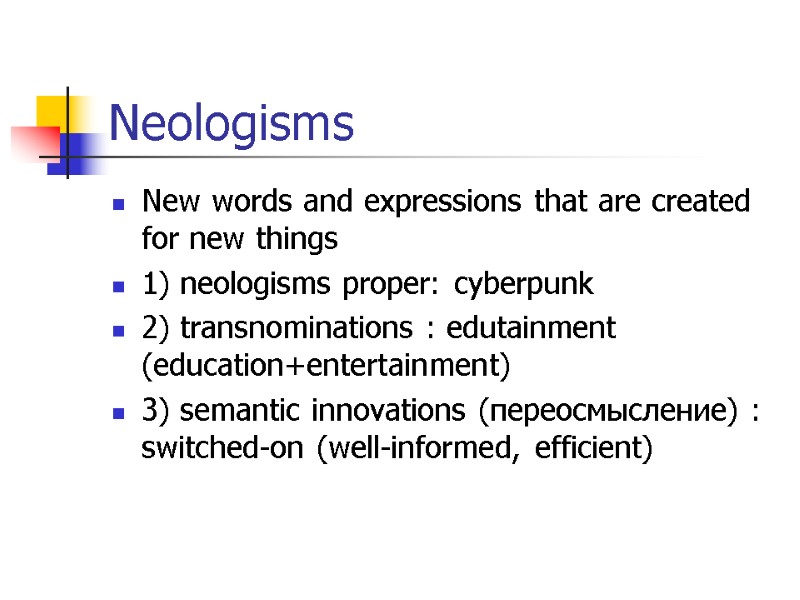
Neologisms New words and expressions that are created for new things 1) neologisms proper: cyberpunk 2) transnominations : edutainment (education+entertainment) 3) semantic innovations (переосмысление) : switched-on (well-informed, efficient)
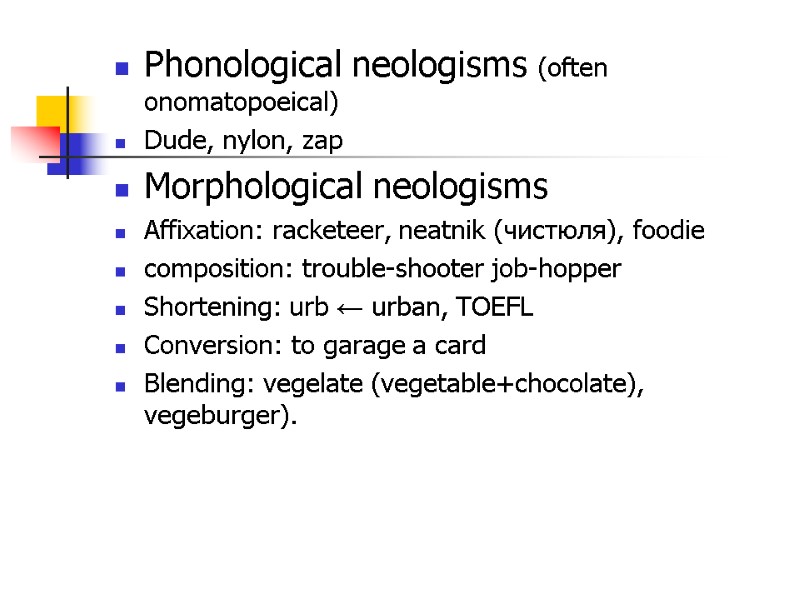
Phonological neologisms (often onomatopoeical) Dude, nylon, zap Morphological neologisms Affixation: racketeer, neatnik (чистюля), foodie composition: trouble-shooter job-hopper Shortening: urb ← urban, TOEFL Conversion: to garage a card Blending: vegelate (vegetable+chocolate), vegeburger).
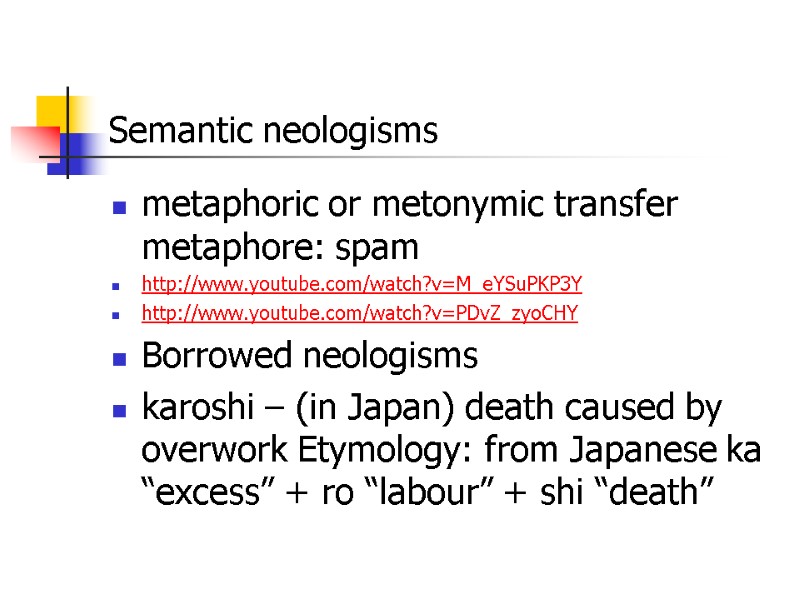
Semantic neologisms metaphoric or metonymic transfer metaphore: spam http://www.youtube.com/watch?v=M_eYSuPKP3Y http://www.youtube.com/watch?v=PDvZ_zyoCHY Borrowed neologisms karoshi – (in Japan) death caused by overwork Etymology: from Japanese ka “excess” + ro “labour” + shi “death”
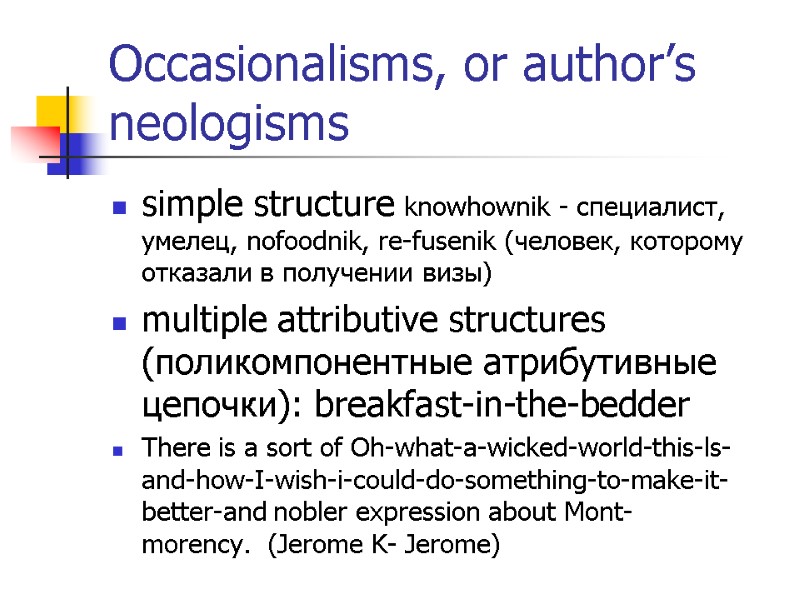
Occasionalisms, or author’s neologisms simple structure knowhownik - специалист, умелец, nofoodnik, re-fusenik (человек, которому отказали в получении визы) multiple attributive structures (поликомпонентные атрибутивные цепочки): breakfast-in-the-bedder There is a sort of Oh-what-a-wicked-world-this-ls-and-how-I-wish-i-could-do-something-to-make-it-better-and nobler expression about Mont-morency. (Jerome K- Jerome)
9534-3_lexicology_lexis_as_a_system.ppt
- Количество слайдов: 18

